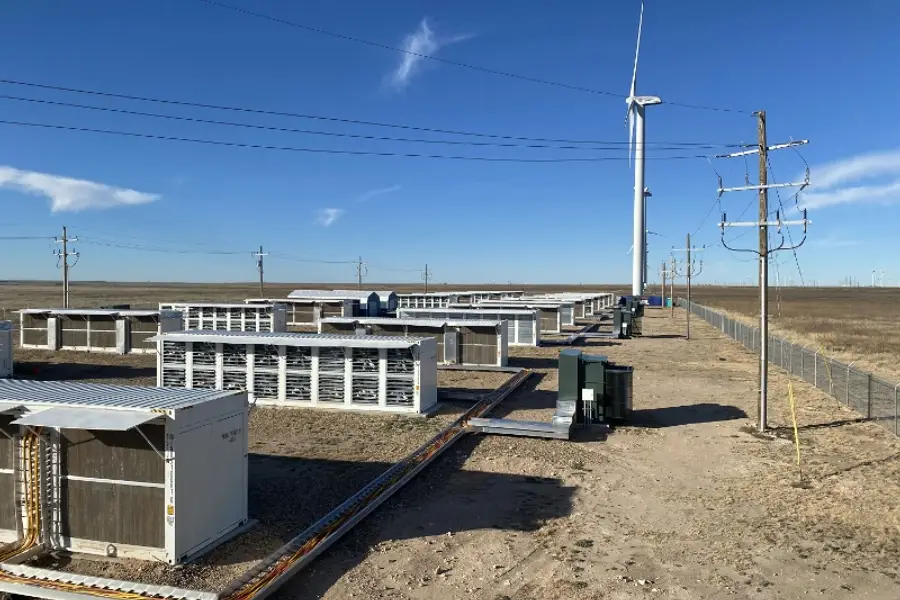The move could pave the way for the former car trader to relocate its headquarters outside the Chinese Mainland, with Singapore, Hong Kong and the U.S. as possible destinations
Key Takeaways:
- Cango announced it completed the sale of its China business, including its car-trading and financing services in a deal valued at $352 million
- The company also announced a major overhaul of its board, bringing in new members with financial expertise, reflecting its new focus on bitcoin mining
By Doug Young
Where is recently minted bitcoin miner Cango Inc. (CANG.US) headed next?
That question loomed large this week, as the company announced on Tuesday that it had taken a major step in shedding its roots in Mainland China, where cryptocurrency is illegal. Cango’s original roots are in China, though all of its bitcoin mining operations are outside the country. But it announced it has completed the sale of its China-based business, including its core car-trading and financing services, in a deal first announced in April and approved by Cango shareholders on May 16.
That could pave the way for Cango to officially move its headquarters outside of Mainland China, as it implied it might do soon with a statement about the disposal of its China business. One strong candidate for such a relocation could be Hong Kong, which is part of China but is highly autonomous and allows cryptocurrency trading. Another is Singapore, which is also emerging as a regional cryptocurrency hub and where Cango also has some ties. And a third option is the U.S.
“As the company no longer has any business in the People’s Republic of China, the company will submit a filing with the China Securities Regulatory Commission for the termination of the company’s status as a ‘China Concept Stock’ subject to CSRC’s jurisdiction,” Cango said in its statement, referring to China by its formal name.
The company also announced a major overhaul of its board, with the departure of four of its seven members and arrival of two new ones with strong financial backgrounds. More on that shortly.
The big picture for Cango is the company’s sudden transformation, which it revealed last November with the announcement of its purchase of $256 million worth of bitcoin mining machines with 32 EH of capacity. The company plans to add another 18 EH by the end of July through another purchase valued at $144 million, bringing its total to 50 EH, making it one of the world’s top bitcoin miners.
Before the purchases, Cango was a veteran of China’s auto industry, starting as an auto financier and later transitioning into car-trading services. But co-founder and CEO Lin Jiayuan has repeatedly flagged problems in China’s car sector following the buildup of huge overcapacity that has sent many manufacturers and dealers into the red after a two-decade boom. As a result, Cango was already playing down its car-related businesses before the shift, causing its revenue to shrivel to just 27 million yuan ($3.8 million) in last year’s third quarter, the last full quarter before it began its crypto shift.
The company was listed on the New York Stock Exchange in 2018 and considered a “China concept” stock due to its headquarters and business operation in China. All such listings are subject to regulation by the CSRC, China’s securities regulator. But the removal of such a designation, and Cango’s statement that it is no longer subject to CSRC oversight, appear to be steps in the company’s efforts to extricate itself from its original market.
$350 million sale
Cango first indicated its intent to dispose of its China business in March, when Enduring Wealth Capital Ltd. proposed taking control of the company. As part of that proposal, Enduring Wealth agreed to help Cango find a buyer for its China business. True to its word, Cango announced a month later that Ursalpha Digital Ltd. had agreed to buy the China business for a total consideration of about $352 million in cash, including $211 million up front and the remainder in later installments.
In addition to completing that deal, the latest announcement detailed a major overhaul of Cango’s board to reflect its transition to the cryptocurrency realm. The company said that four of its seven board members resigned, leaving co-founders Lin Jiayuan, who is also CEO, and Zhang Xiaojun, who is chairman, among the three remaining original members. The outgoing members included Zhang Yongyi, whose concurrent position as CFO will be filled an interim basis by Lin Jiayuan.
In conjunction with the departure of the four board members, Cango announced the arrival of two new directors, Lin Yanjun and Lu Haitian, both with strong backgrounds in finance. Lin Yuanjun is a founding partner of I.N Capital, a blockchain and AI investment and consulting company, and formerly worked as a senior investment banker at Credit Suisse and Barclays Capital. Lu Haitian is an accounting and finance professor at Hong Kong Polytechnic University, and has expertise in financial, regulatory and sustainability technology.
Cango’s stock rose 6.1% after the announcement on Tuesday. The stock has more than tripled since the company first disclosed its move into bitcoin last November. But it has lost some momentum lately, roughly unchanged since the start of the year, indicating investors may believe it’s fairly valued at its current level.
The company was quite cash-rich before the transition and has seen that amount swell even more with its recent cache of bitcoins that totaled 2,944.8 at the end of April. Its cash and short-term investments were worth 7.7 billion yuan at the end of March, or more than triple the 2.5 billion yuan they were worth just three months earlier.
That brings us to the question of where Cango might be headed next.
Singapore looks like the likeliest candidate, but Hong Kong could also be a strong contender if the company wants to remain closer to its original roots in Shanghai. The U.S., where Cango conducts more than a third of its bitcoin mining, is also a potential option. The Singapore connection comes through Enduring Wealth Capital, which looks likely to take control of Cango, and has ties to Antalpha Ventures, a Singaporean investment firm.
Both Singapore and Hong Kong would undoubtedly welcome Cango to set up shop in either city, as both have taken numerous steps in recent years to develop their cryptocurrency sectors. Most recently, Hong Kong’s Securities and Futures Commission launched a five-pillar framework in February aimed at nurturing development of the city’s virtual asset industry.
The Bamboo Works offers a wide-ranging mix of coverage on U.S.- and Hong Kong-listed Chinese companies, including some sponsored content. For additional queries, including questions on individual articles, please contact us by clicking here
To subscribe to Bamboo Works free weekly newsletter, click here





